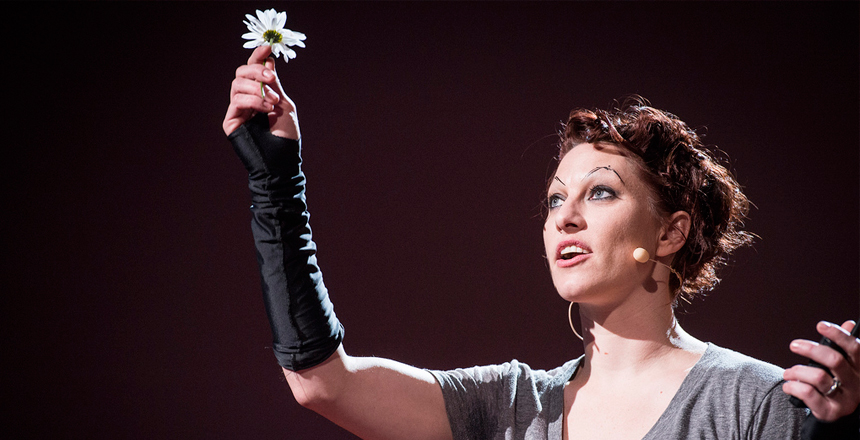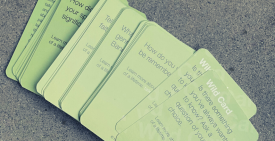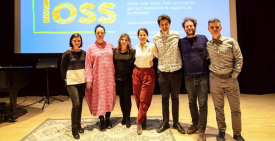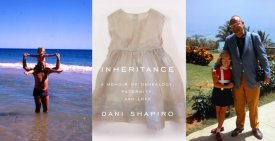Tuesday morning, as I woke up to daylight asserting itself through my windows, I found myself restlessly refreshing my Instagram feed, looking for clues that would tell me whether or not a perfect stranger hundreds of miles away had died during the night.
If you are a frequenter of the Internet, you may have heard of Amanda Palmer. Her TED talk, the Art of Asking, has over 3.5 million views on YouTube. Back in 2012, she raised a staggering $1.2 million via Kickstarter to produce and tour her second solo album. (She originally made a name for herself as part of the Boston punk-cabaret duo The Dresden Dolls.) She and Neil Gaiman make up the Internet’s favorite cult-celebrity-artist power couple. She tours frequently, is prolific on social media, and inspires both devotion and controversy wherever she treads.
Related
Part of what makes her fan base so devoted is that she’s rarely off social media, even during deeply difficult and painful periods of her life, and she writes about these periods on her blog, and on Twitter and Facebook. These posts are always intimate — sometimes breathtaking, sometimes jarring, often both at once.
A few years ago she published one of these personal posts on her blog, explaining to fans and followers why she had made the decision to cancel the next year of her tour, most of which had already sold out. Her best friend and mentor had leukemia, and she had made the decision to stay with him as he dealt with the diagnosis and went through treatment. She dutifully documented her friend’s treatment, his remission, the cancer’s eventual return. At the same time she kept performing. She gave a talk. She wrote a book. She announced a baby.
Then last week, she made another announcement, this time via Patreon, her latest crowdfunding platform. She got the call. It was time to go home, to be with her friend on his deathbed.
The huge presence of social media in modern life has afforded us a space for the reemergence and reinvention of the public deathbed. The late Lisa Bonchek Adams blogged and tweeted prolifically about her experience with stage IV cancer, right up until her death in March of this year. In 2013 Scott Simon live-tweeted his mother’s final days. There is a Tumblr devoted entirely to funeral selfies, which some have praised as examples of millennials engaging with death in their own way, and others have called a sign of the coming apocalypse.
Much more complicated are the public performances of death that have not been offered freely. Beheadings that go viral. The Darwin Awards. The sickening, unnecessary killings of Eric Garner, Tamir Rice and Walter Scott, to name just a few.
These phenomena have inspired questions that aren’t really new at all. To what extent is it possible to engage in someone else’s death, or someone else’s grief? How do you talk about someone else’s loss without projecting your own experience? Where is the line between engagement and voyeurism?
For my part, I can’t pretend I read Palmer’s post about flying back to Boston — not knowing whether or not her friend would still be alive when she got there — without flashing back to my own experience boarding a cross-country flight, hoping my mother wouldn’t die before I landed in Burbank. Was my relief when I found out she made it to his side for her or for me? Was it both? Who was I grieving for when I learned that her friend had died late Monday night? Does it matter, as long as I felt something? I find myself wondering if there is a distinction between coming across updates and seeking them out. Even if Palmer is willingly sharing news and photos from her friend’s bedside, even if she is gifting her experience of his death to her followers, do we have a responsibility to receive this gift in a certain way?
The responsibility to react can be overwhelming. Experiencing someone else’s loss remotely can leave you feeling helpless. Condolences feel lost, impersonal or irrelevant. We hardly know how to respond to loss within our communities, let alone loss outside of them. Sometimes all you can do is be moved — to call for change if change is needed, to donate when donations are asked for, to love someone in your life a little bit more. That has to be enough. Just please don’t send anyone a casserole. I think we can all agree on that.
Ruby Dutcher is an intern at Modern Loss and a rising senior at Barnard College in New York. She answers your emails and writes for the site sometimes. She saw the Dresden Dolls perform a reunion show in Brooklyn this year and promises that it was great.












